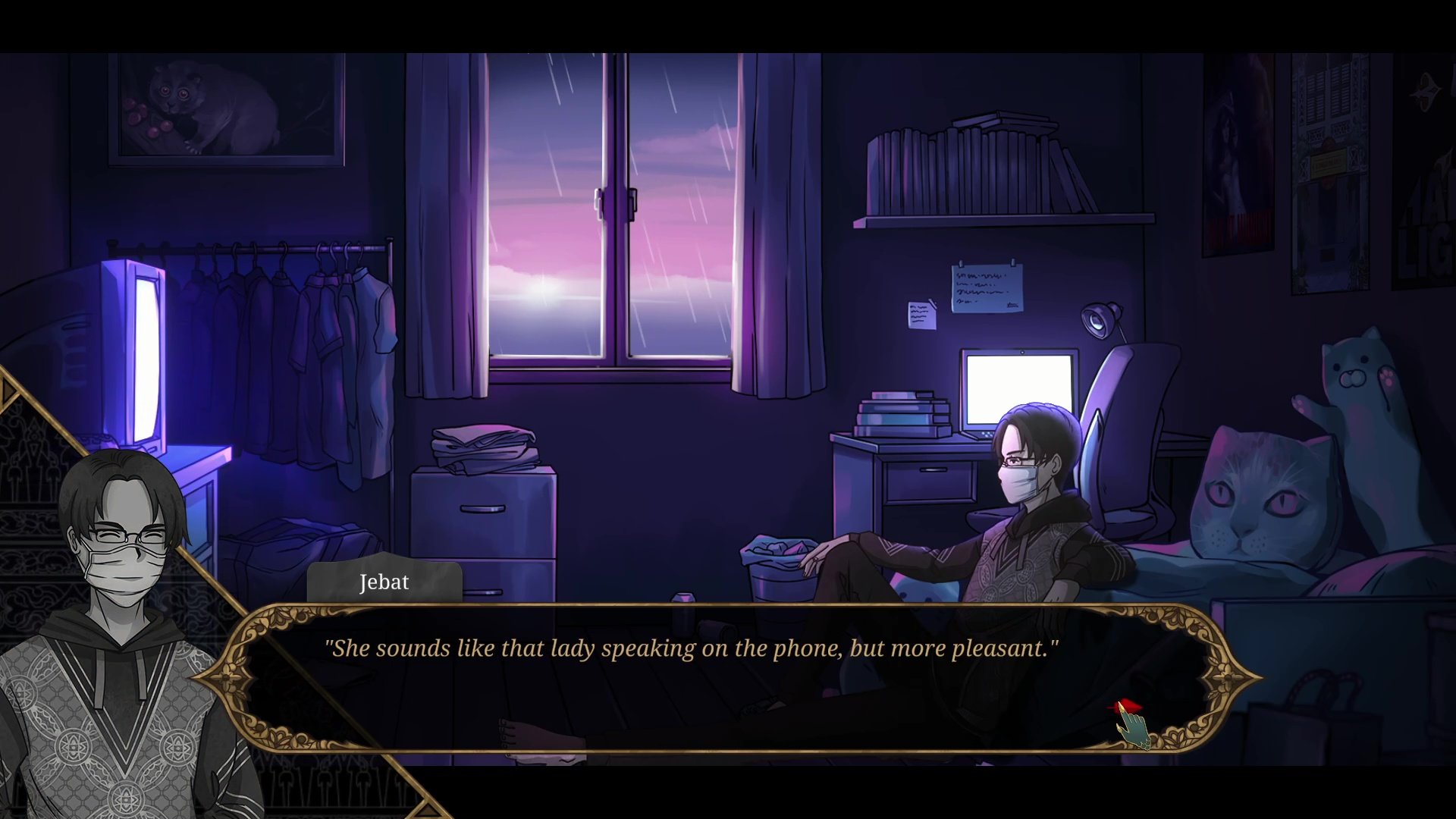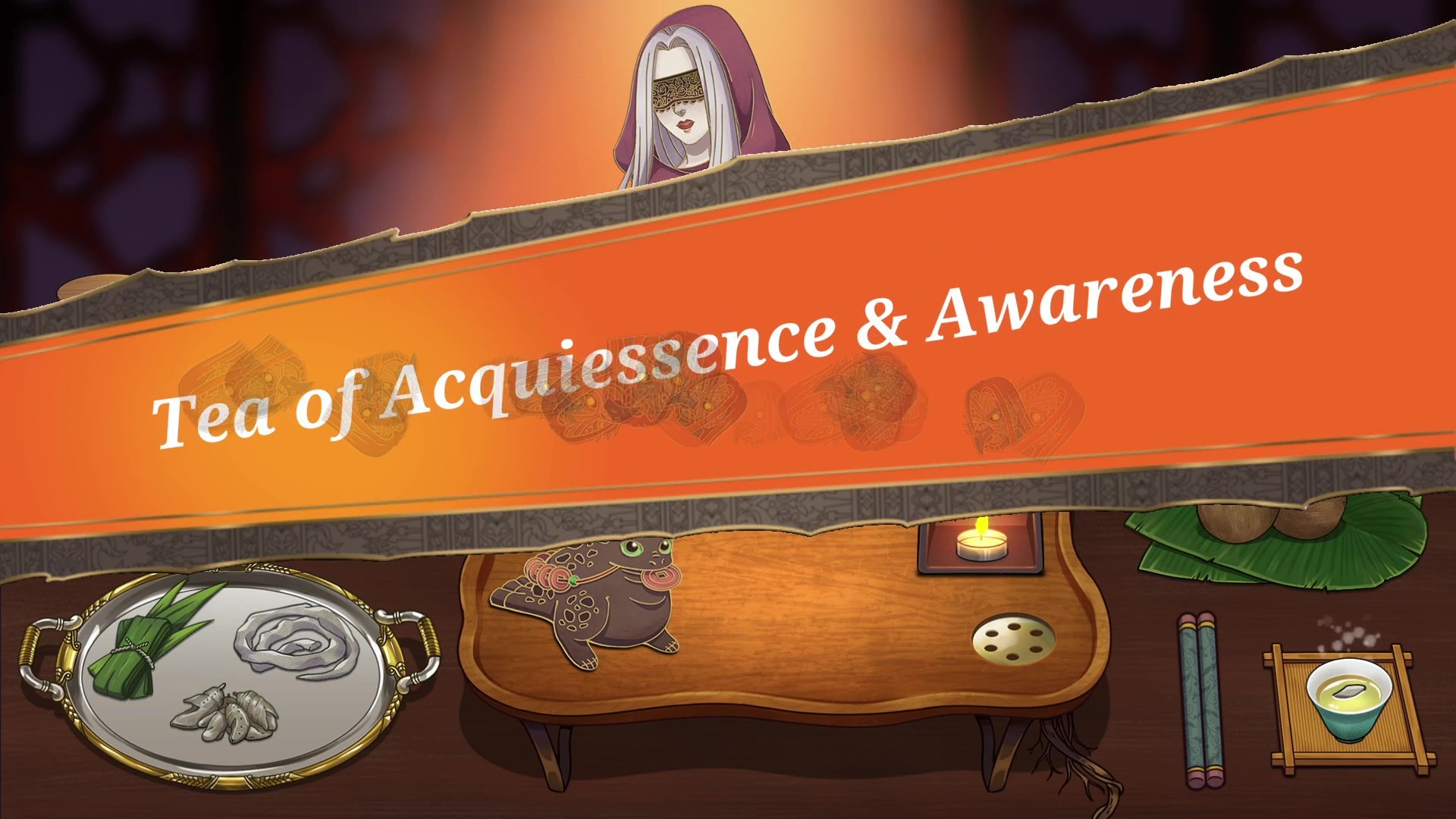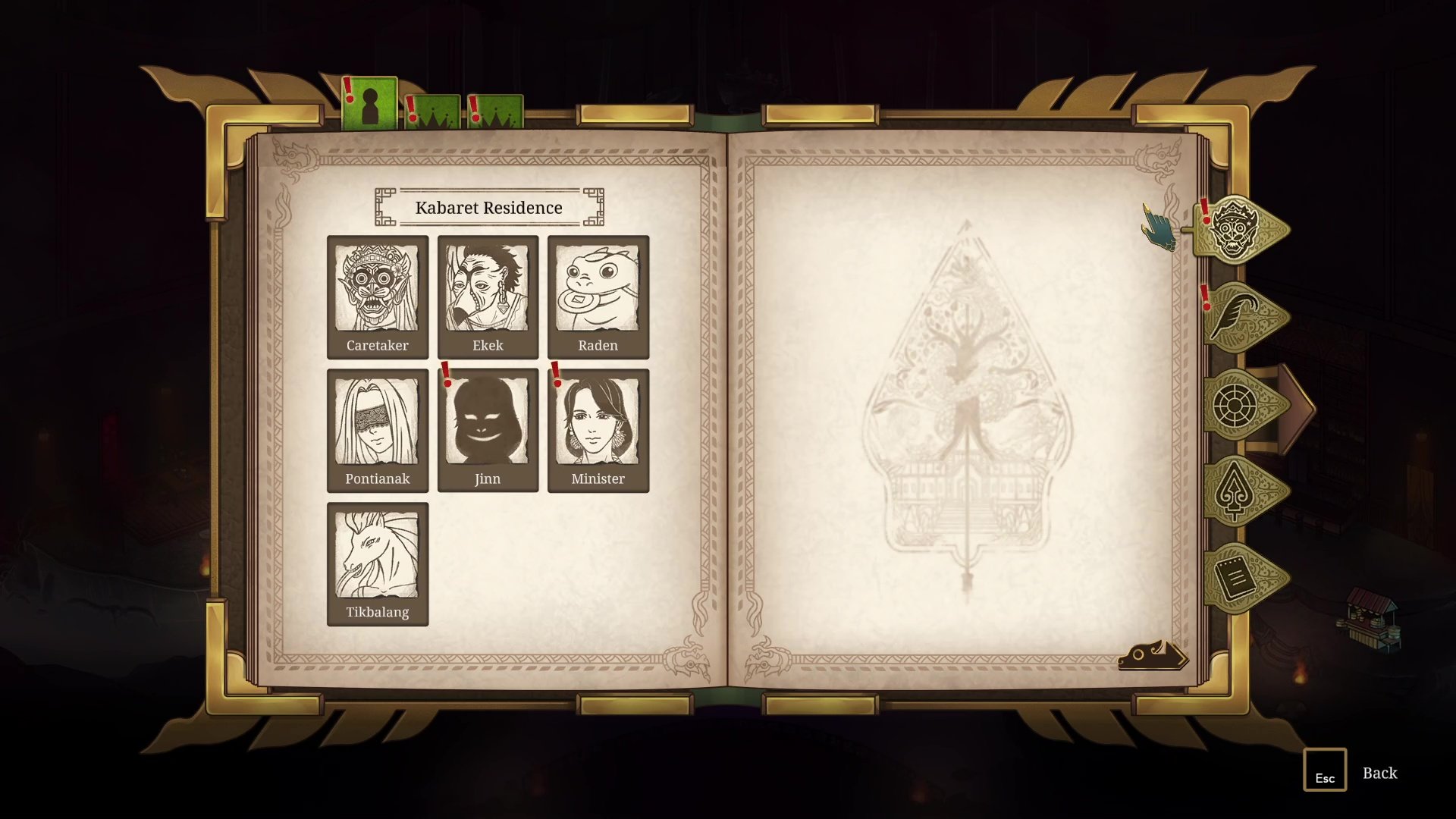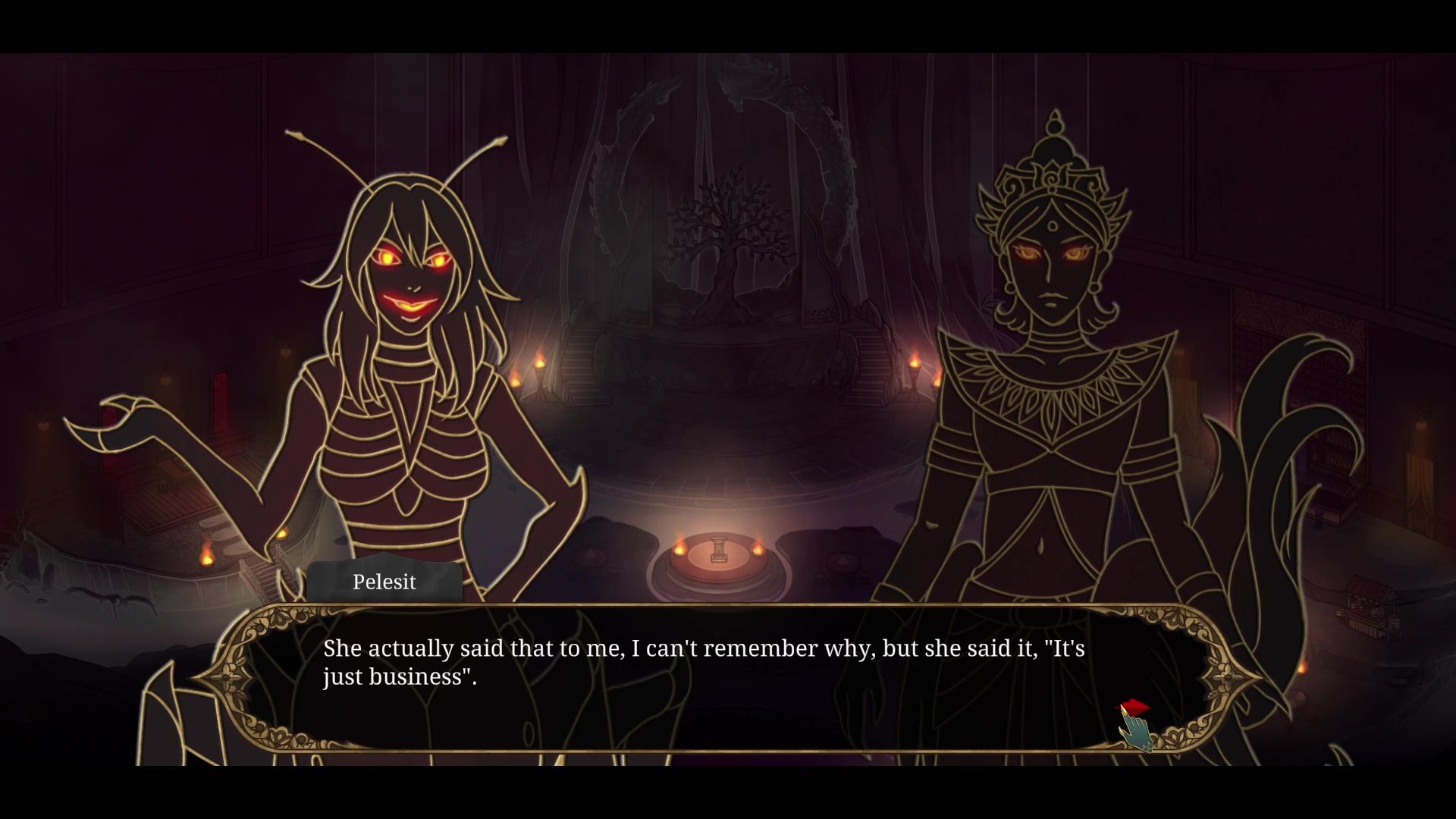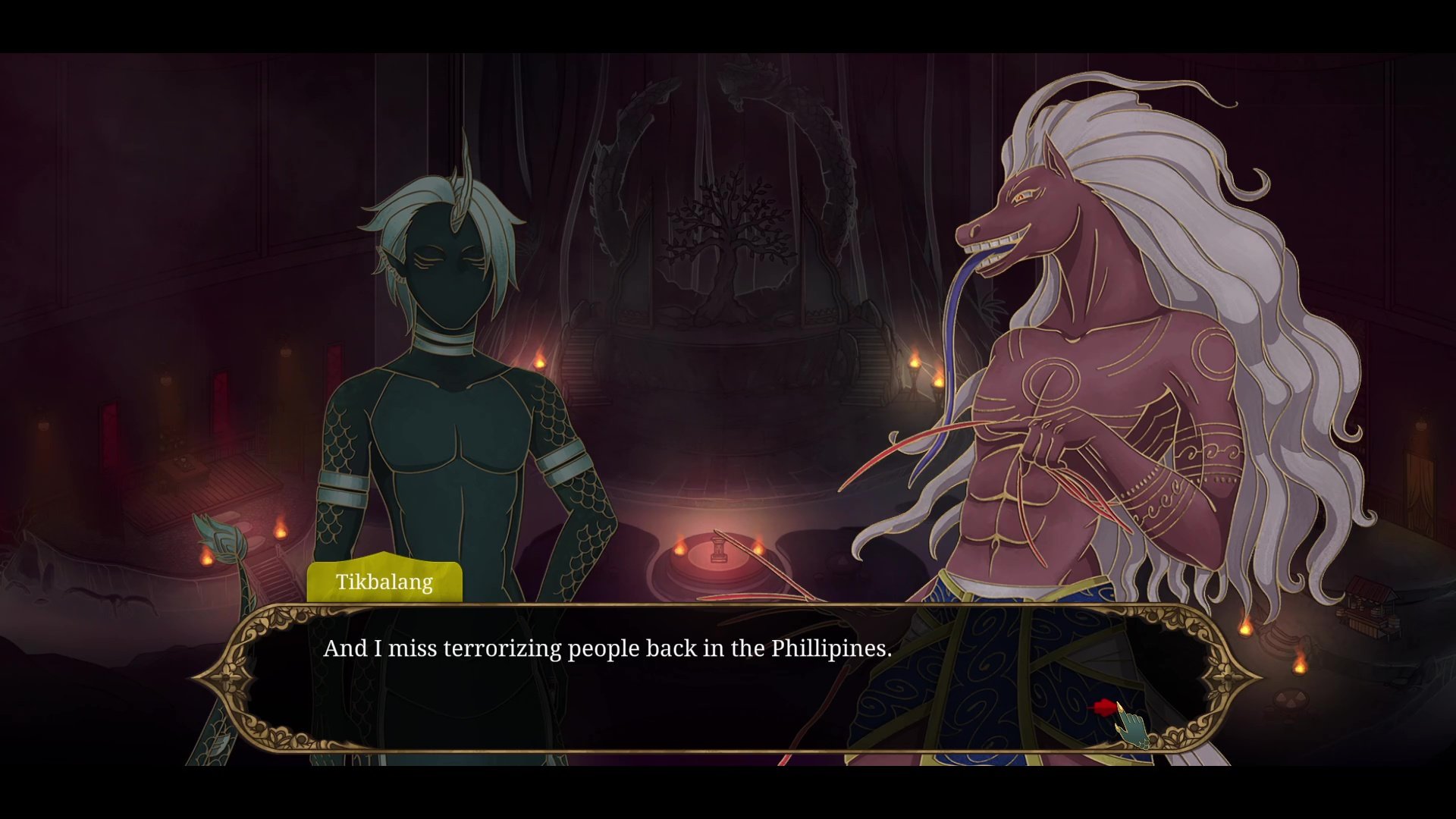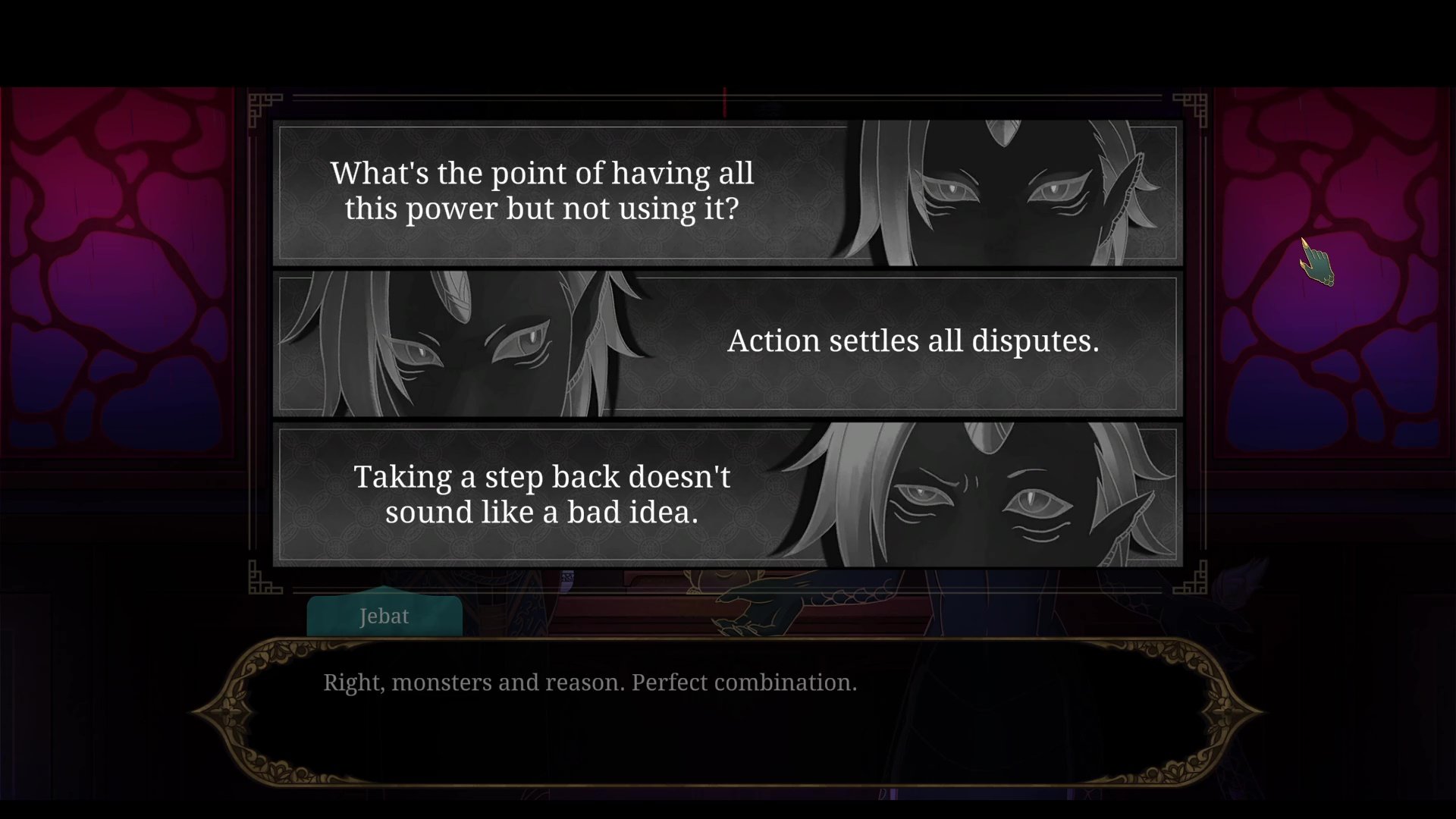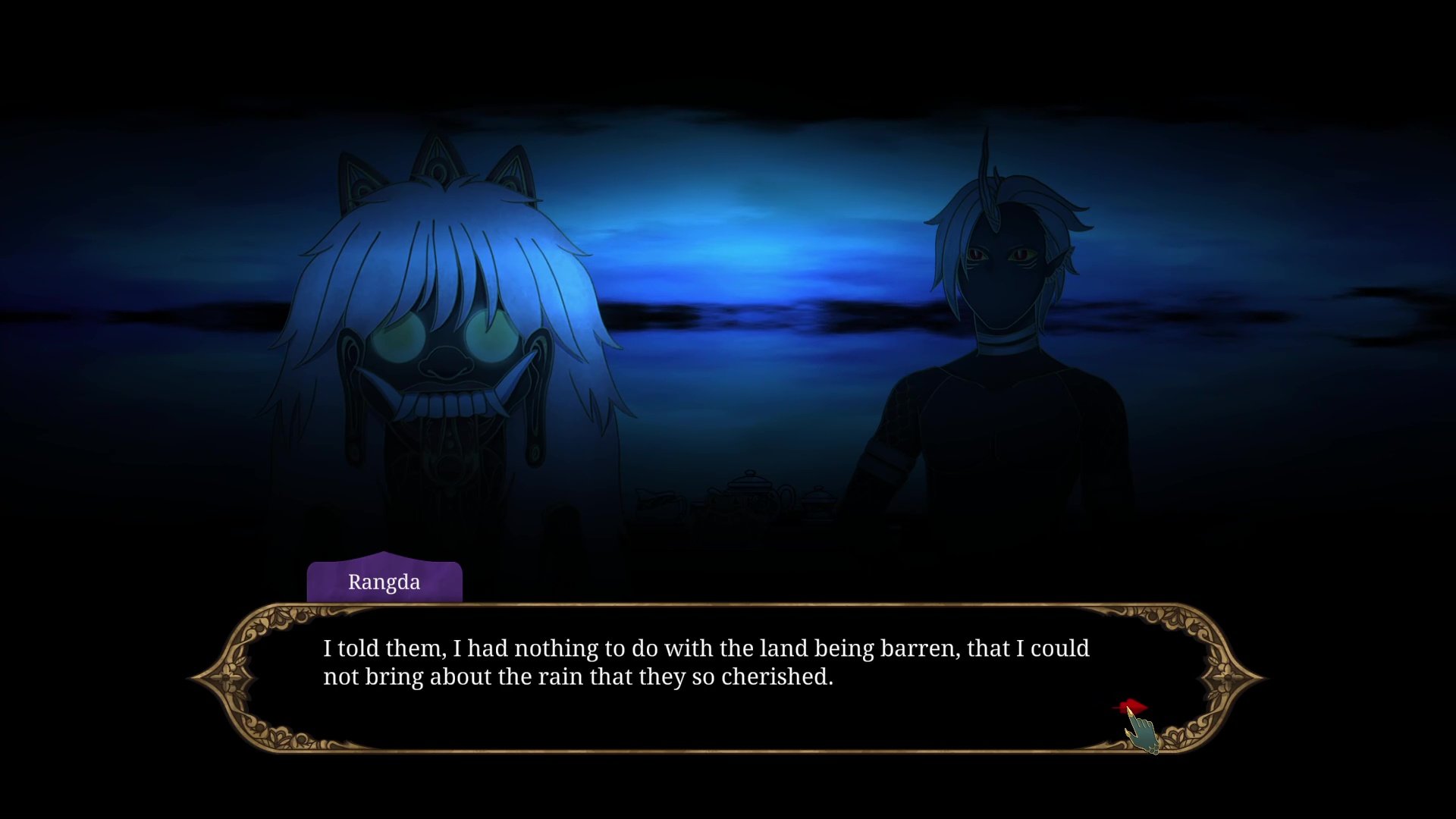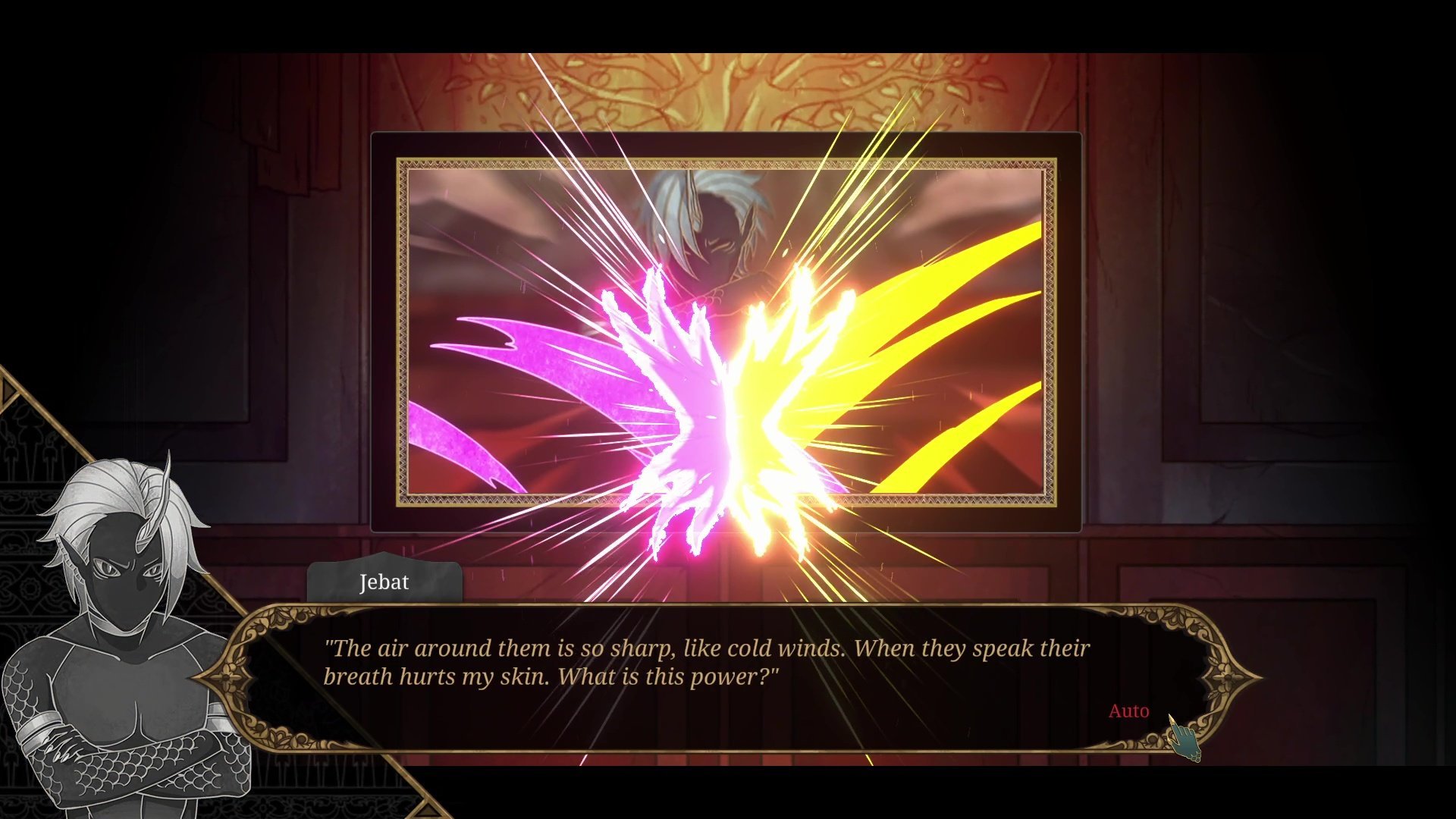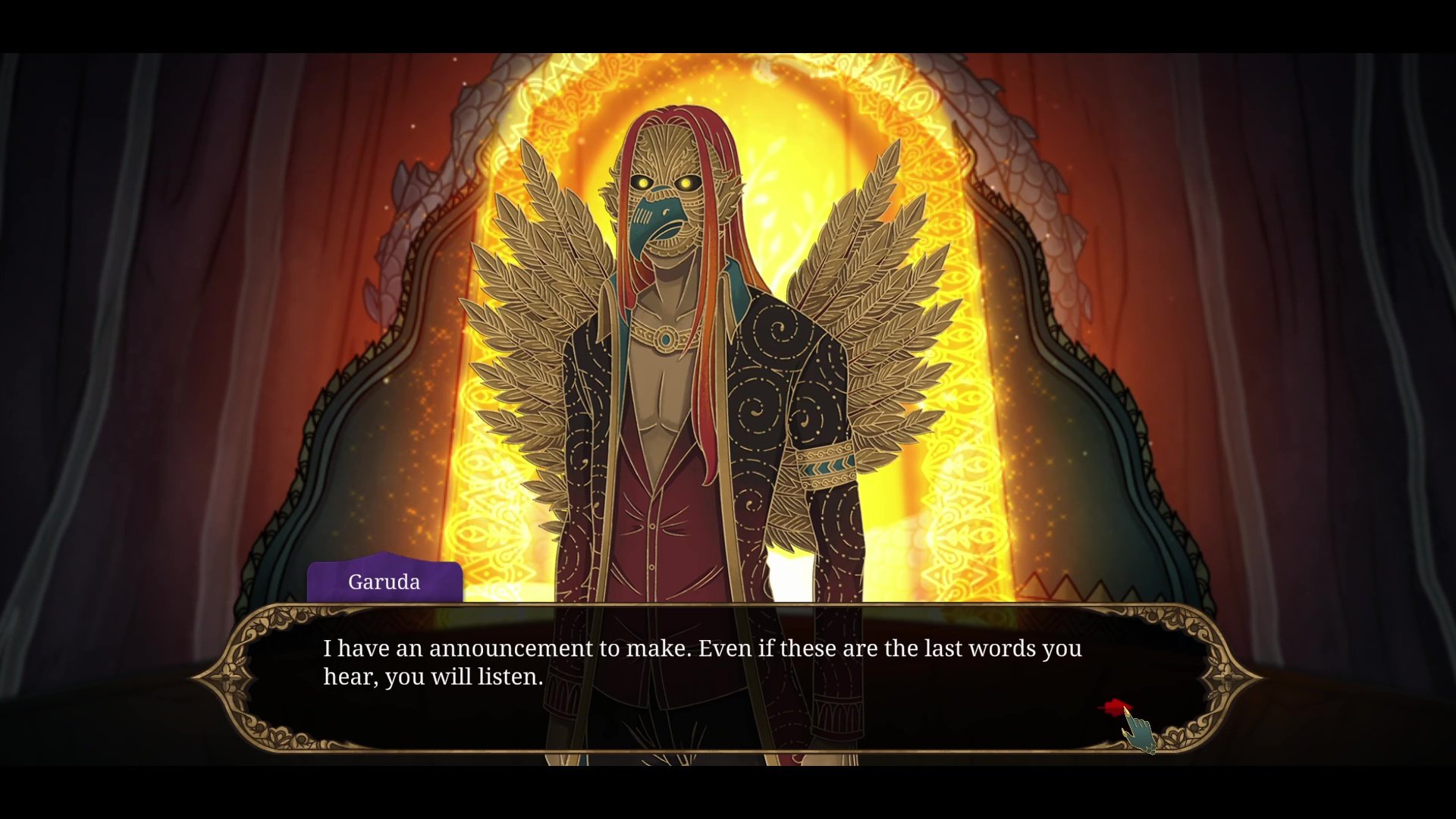REVIEWS FROM THE COUCH
Kabaret
Kabaret
PUBLISHED
ULTIMA MODIFICA
1a VERS. INGLESE
25 May 2025
25 Maggio 2025
07 August 2023

GAME INFO
Title: Kabaret
Year: 2023
Release Date: 4th April 2023
Developer Persona Theory Games
Publisher Persona Theory Games, Wings
Genre: Storia Interattiva
Tags: [Coming Soon]
RECEIVED FOR FREE
(Game Key from the Devs)
ACCESSIBILITY
Input Keyboard, Controller
Lingua: Solo Inglese
Subtitles: X
Voci: X
ITA: X
Trigger Warnings
TWs spoiler important parts or endings, thus are hidden.
- Controversial behaviours and opinions
- Depression
- Genocide
- Mental conditions
- Violent death
- Beating
- Psychosis (element of, ie hearing voices)
- Graphic depiction of suicide
- Racism
- Obscene and violent language
- Blood
- Segregation and ethnic persecution
- Carnage
- Political topics
- Religious topics
- Devouring of human beings
Credits
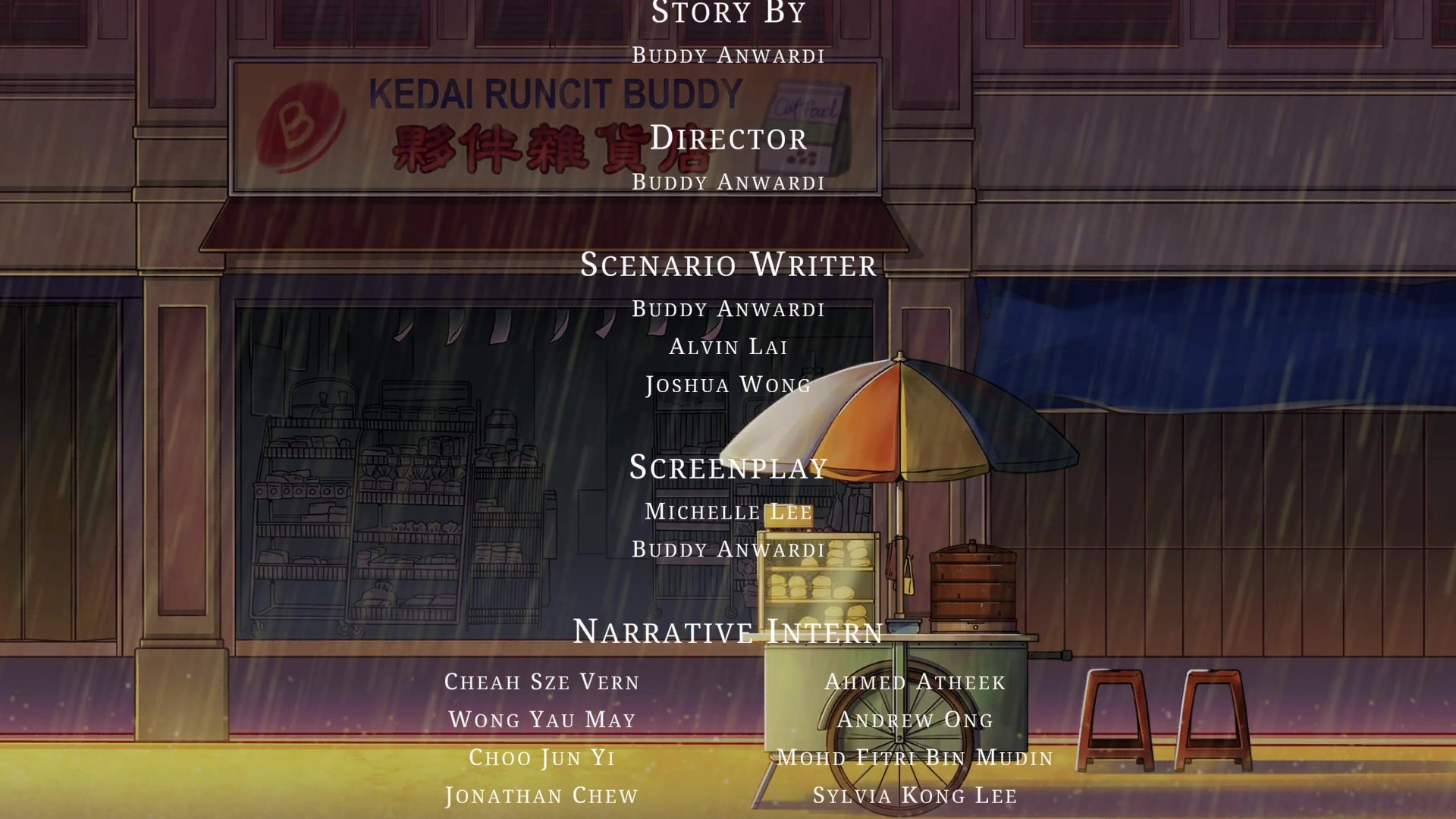
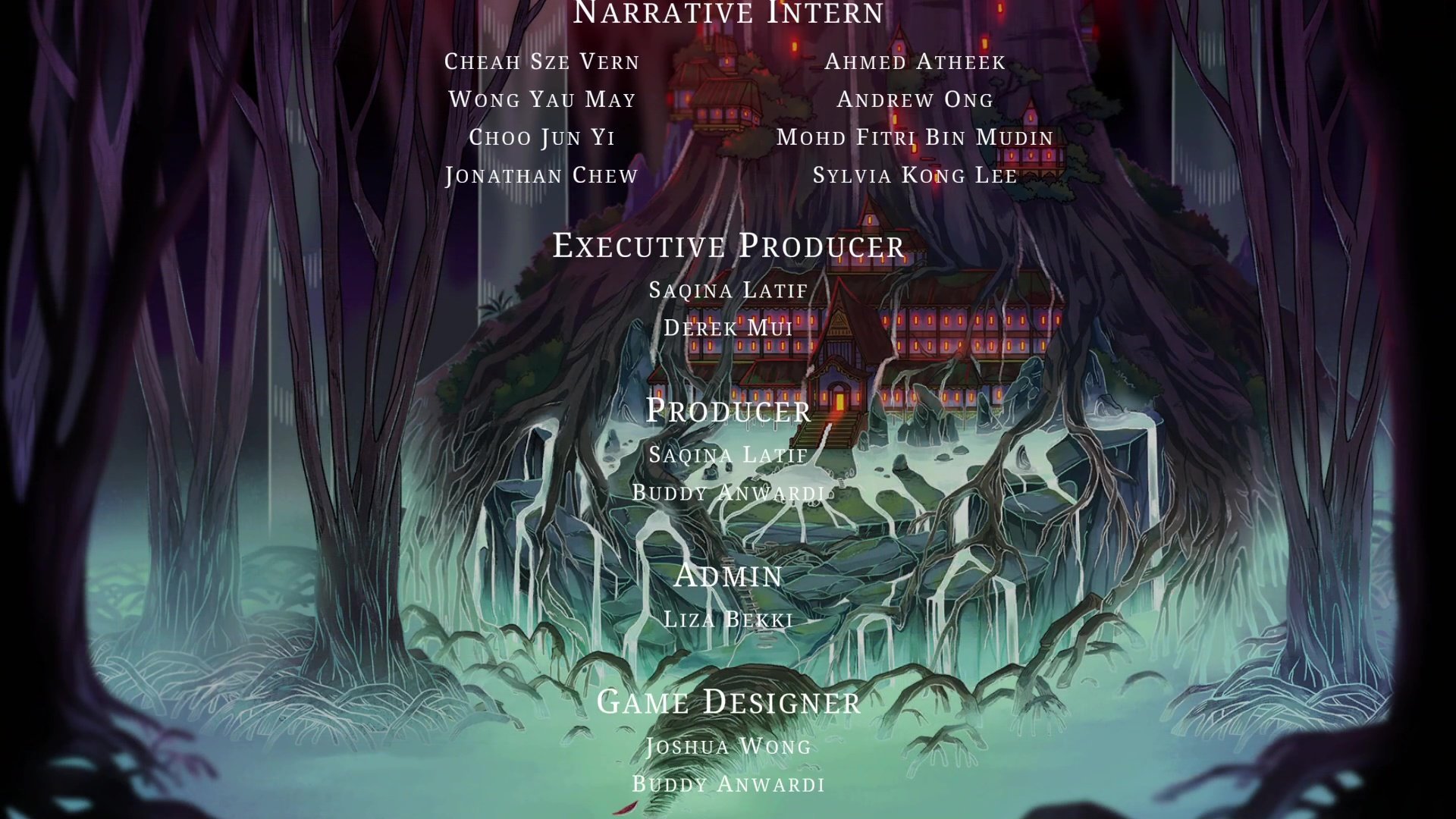
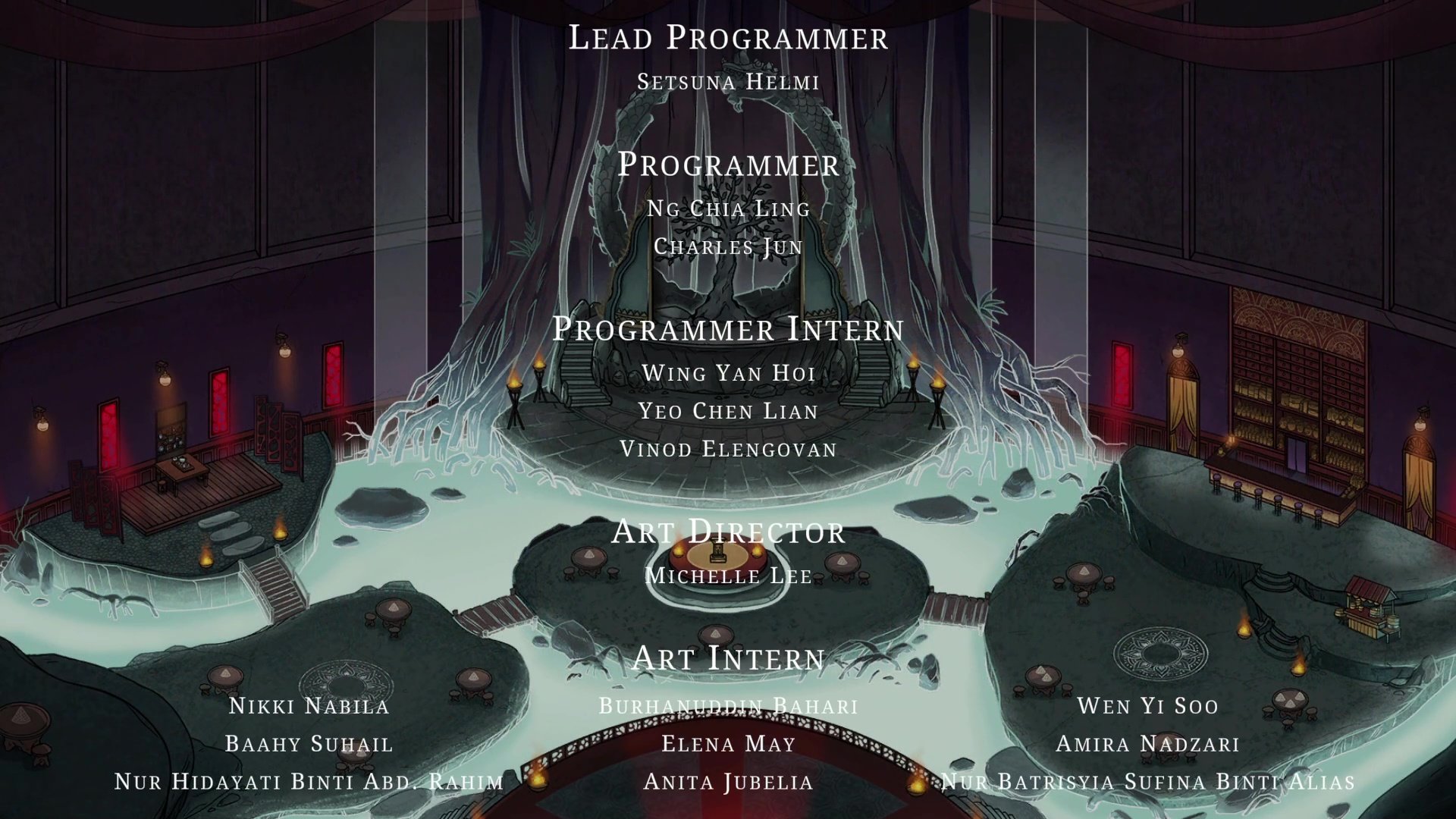
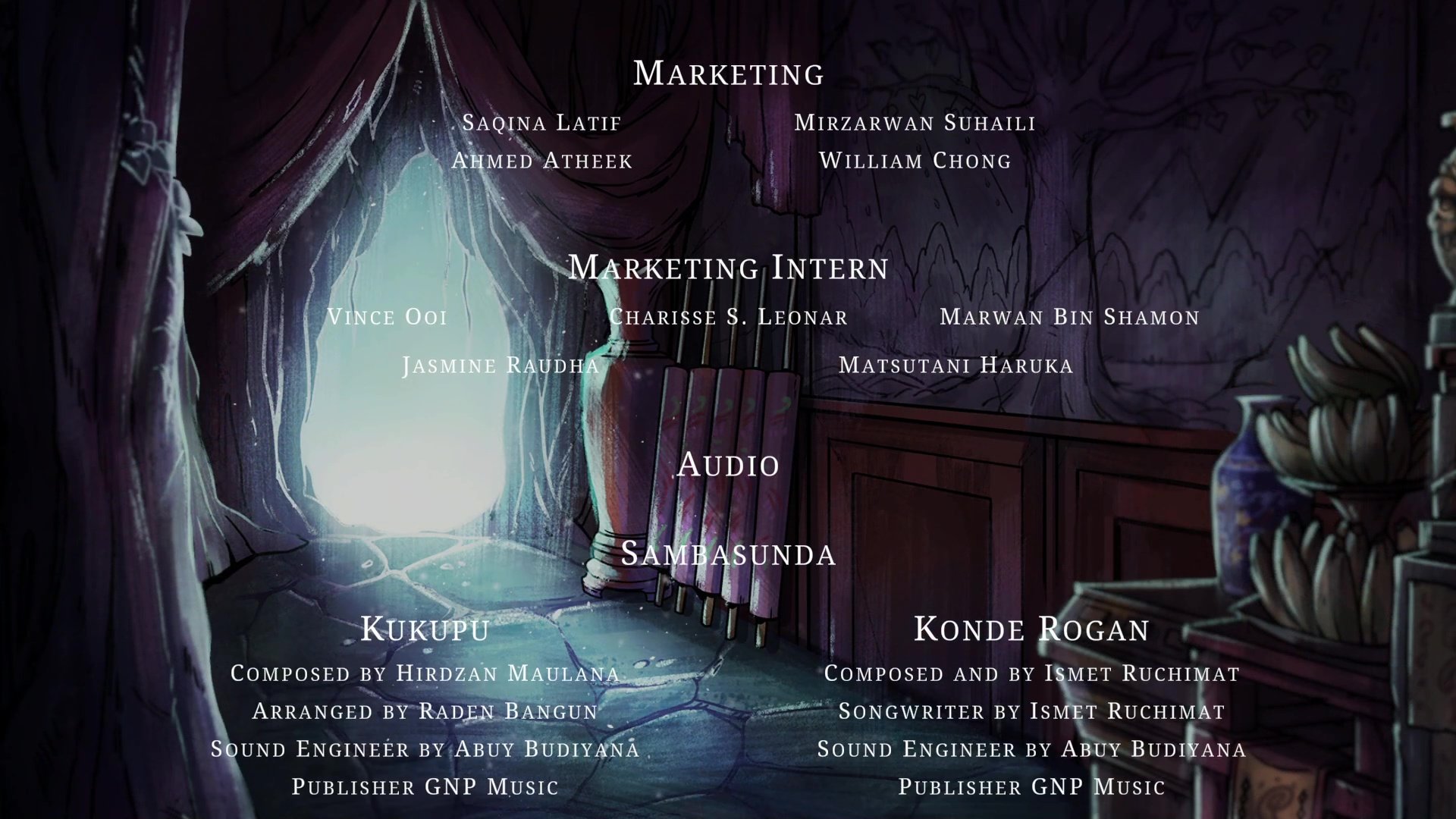
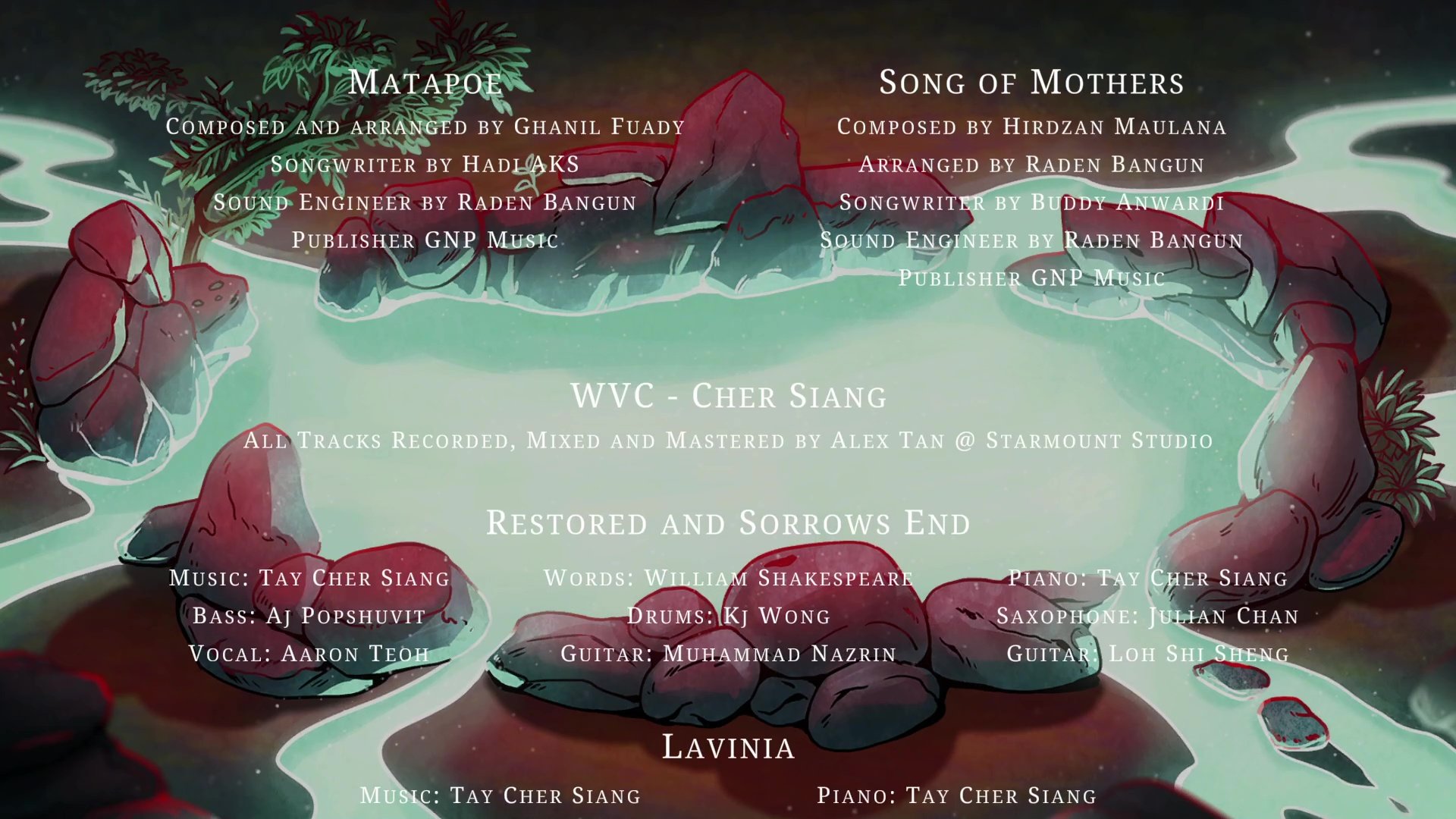
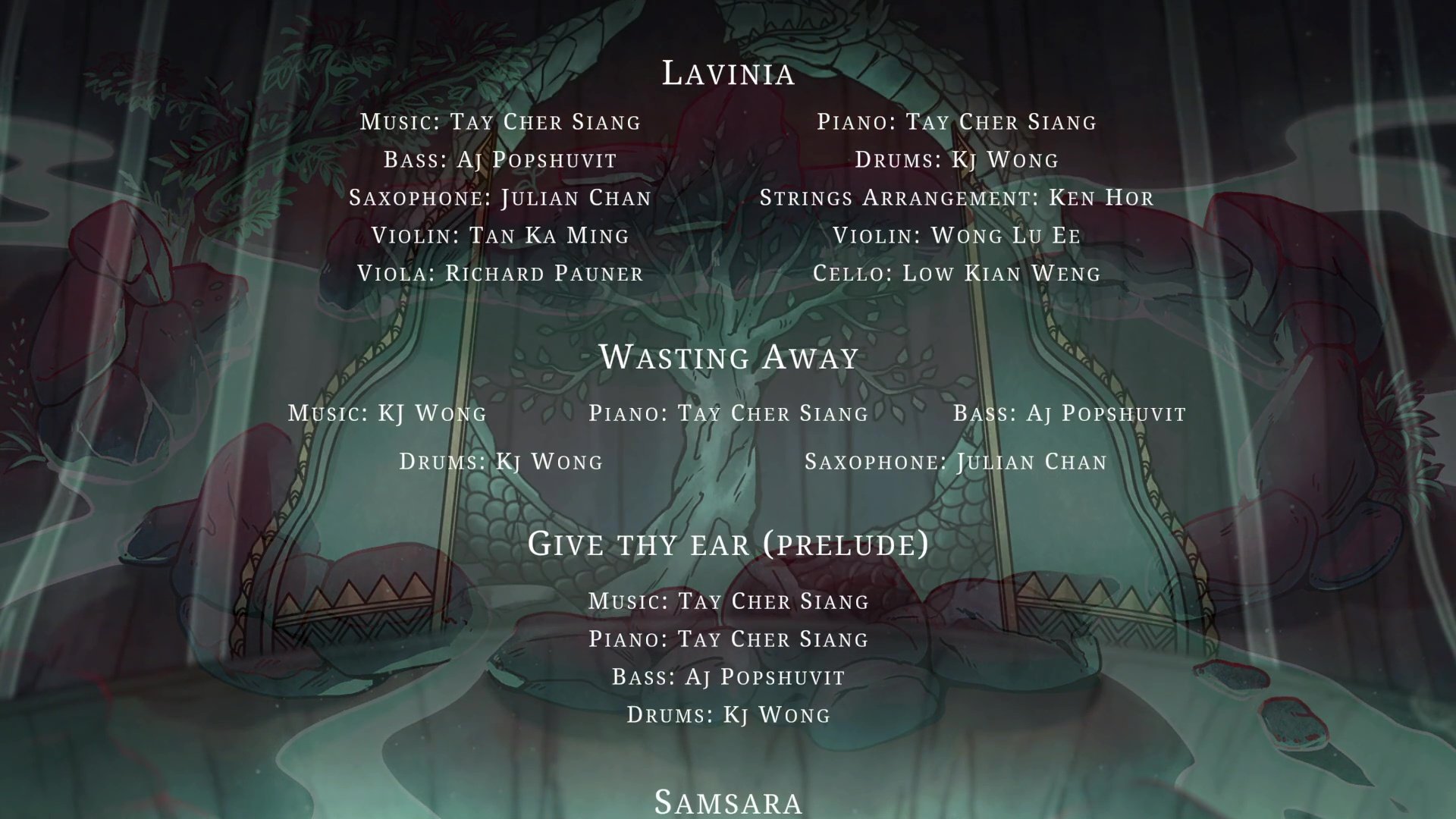
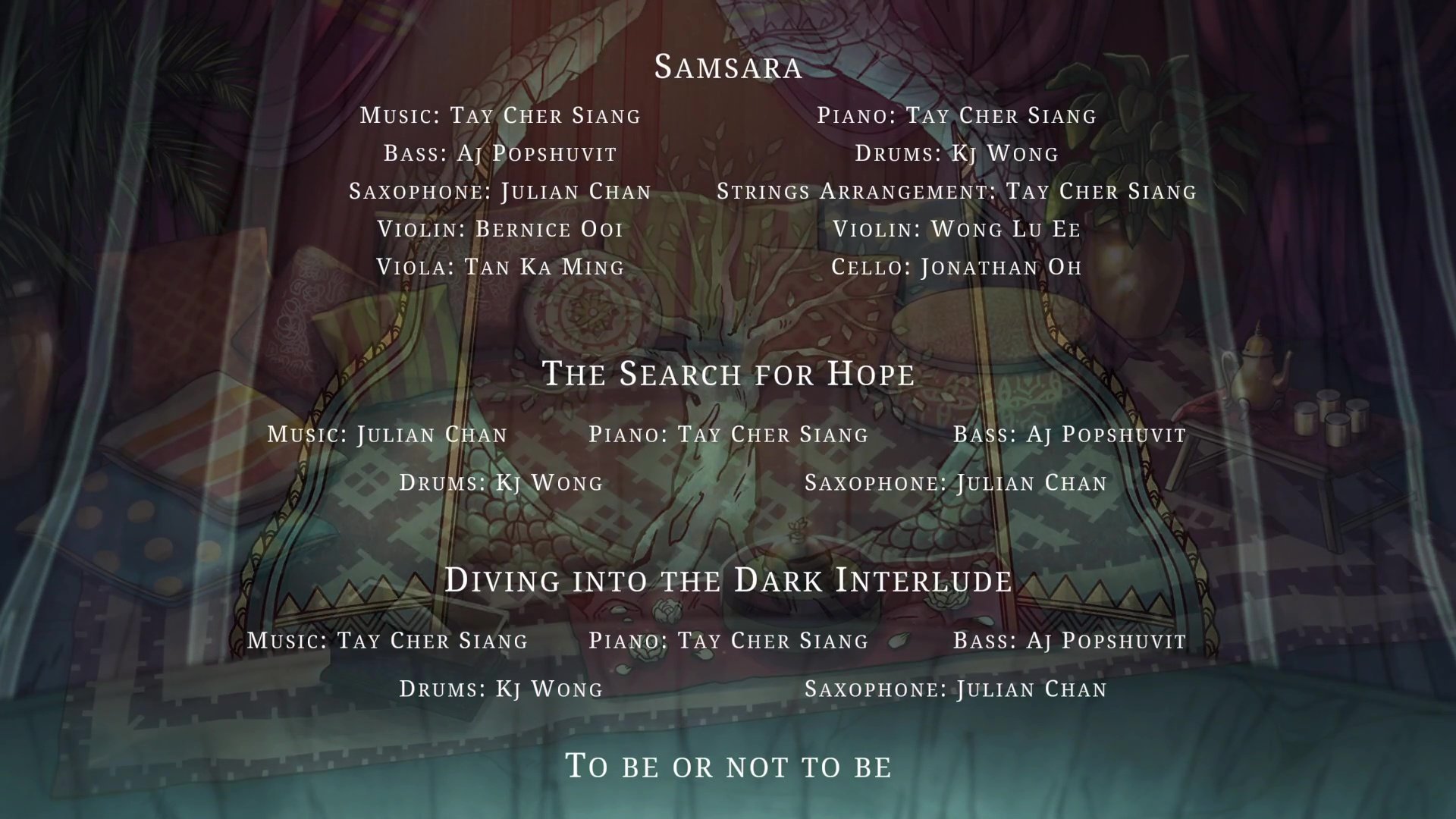
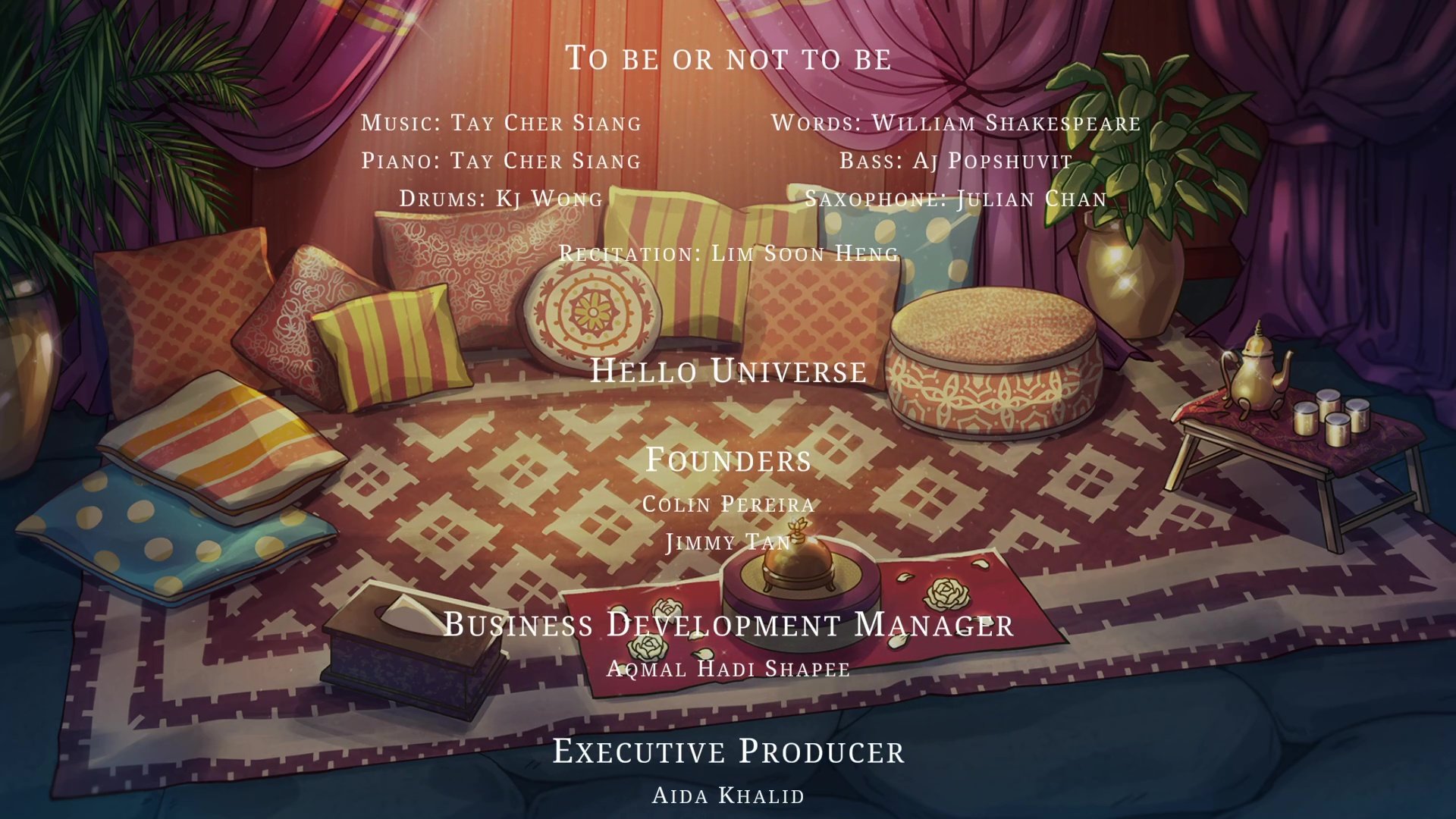
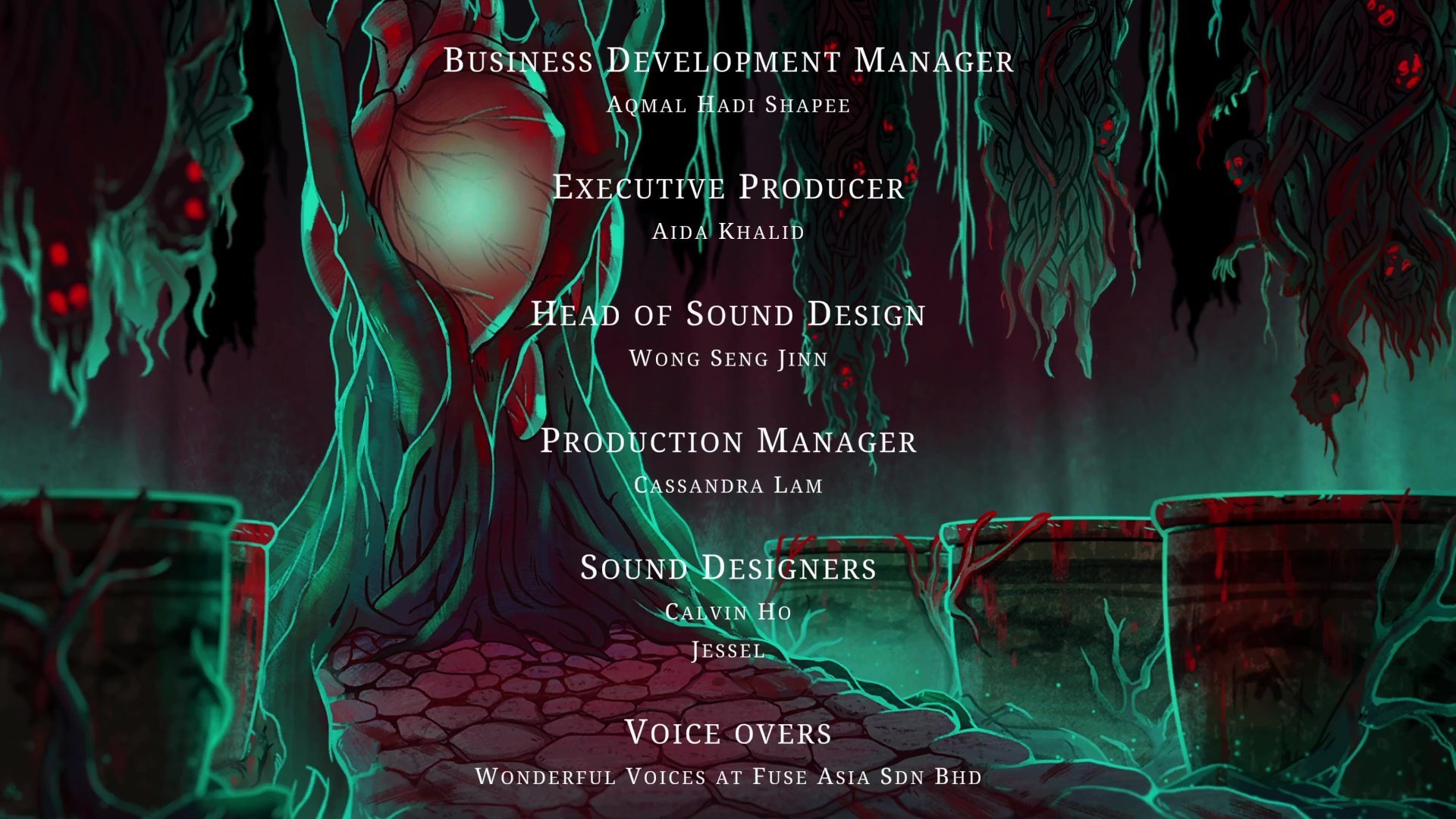
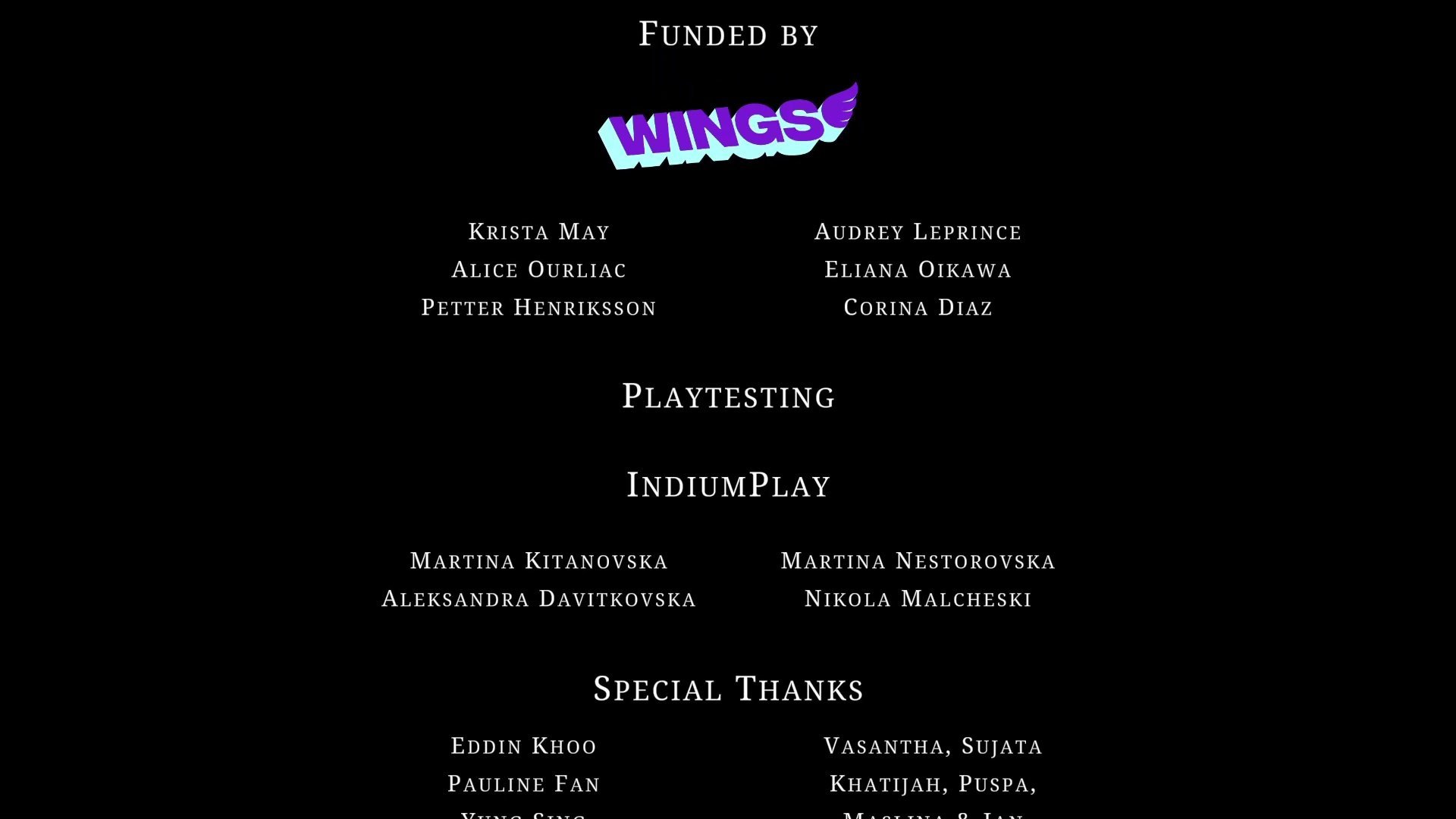
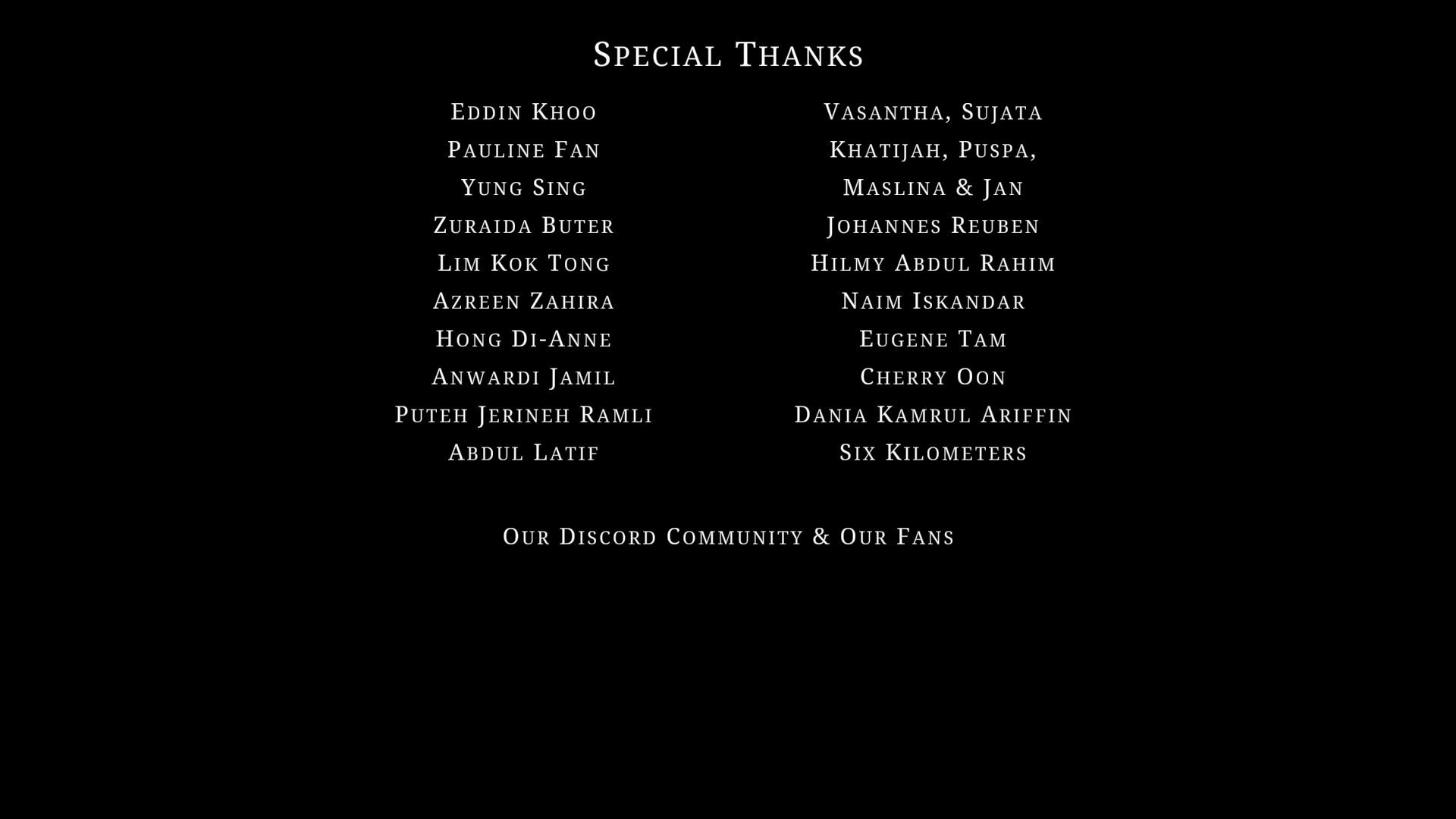
going deep down
going deep down
Introduction
Kabaret was another “casualty” of a Steam Next Fest event.
The preview image and trailer really grabbed me, without even giving me time to breathe: folklore? Monsters and Creatures? Dramatic stories? All of it?
I immediately downloaded the demo which, in addition to being of a more than appreciable length, left me with the burning desire to know "how it ends". As if it were an episode of one of those extremely ugly TV series, like the centenary Beautiful, that if you happen to watch ten minutes by mistake, condemn you to watch the whole episode until the end.
The only difference, of course, is that Kabaret is not bad at all, rather the opposite. It has a story that really got me involved, despite visual novels not being my favorite genre.
Once I had played the demo and was getting closer to the release date, I found out that the developers were willing to give away review keys and I tried to request one. They were very kind and sent me one and I was able to discover the full story even in advance!
And now I can't help but tell you about this intriguing experience!
Ringrazio infinitamente Persona Theory Games per la possibilità!
TRAMA
Ok!
Jebat is a strange young man who lives almost isolated from the rest of the world, apparently cynical, selfish and not very empathetic, with an evident near-hatred for mankind.
He doesn't seem to have ambitions or desires, he feels like a prisoner of a society that he doesn't understand and that seems alien to him. The only job he can keep for now is that of a rider, but he hates it as much as the rest of the world. Every call is a pain for him that, since it leads him to meet people who in his eyes are greedy and ungrateful.
Her mother, Li Wen, is considered severely mentally unstable due to a fanatical dedication to some specific deities she says she speaks to, to the point of spending time in front of an altar conversing with them about Jebat.
The drugs she takes are of little use and this puts further distance between her and Jebat who, on the contrary, seems to be impermeable to any form of spiritualism or religiosity and consequently treats her with aggressive condescension.
Jebat's world changes when one morning he finds his mother hanged in the living room as she leaves for a delivery and, in shock, leaves without even trying to help her.
On his way to collect the paus (a type of Malaysian dumpling) for his delivery from a nearby kiosk, he notices two thugs waiting to rob the very old pau seller using their motorbike. The young man does nothing to avoid it: he doesn't try to scare the hooligans but he doesn't run to the old man to warn him, nor does he call the police, not even when the two ask him what he has to look at and if he intends to do anything to prevent the robbery.
As a consequence, the old man (who knows both Jebat and his mother), is attacked by the two who steal the small purse where he keeps the proceeds and which he clings to, to defend his money, thus ending up being dragged away by the fleeing motorbike. That understandable and instinctive gesture will cost him his life.
We don't know exactly what the cause of death is, whether the injuries due to dragging, a sudden illness or hitting his head on the road, but the fact is that Jebat witnessed it without lifting a finger.
At this point, something sensational happens: a mysterious winged man arrives from the sky, his face hidden behind a finely decorated bird mask, who asks him why he hasn't intervened. Jebat again exposes his cynicism, saying that an old man's death makes no difference.
Suddenly the bird-man curses Jebat, condemning him to an existence of suffering and putting an end to his life just as he contributed to the end of the old man's with his sloth.
Jebat is hit by oblivion and when awakens he's in a strange dark and mysterious swamp, decidedly changed: in fact, he is no longer the young human man he was and his appearance is now that of a beautiful monster with serpentine features (and, personally, as the proud monster lover I am, he really is!).
He will be saved by the cryptic Caretaker arriving on a boat, who will take him inside his Kabaret, where Jebat will become the protagonist of a great, unexpected adventure that will lead him to discover more about himself and that his having become a monster is all other than incredible.
Visual Style
Ok!
Kabaret is a 2D visual novel, with static graphics, with very basic and repetitive short animations that change only between one line and another of the dialogues and sporadic cutscenes in the form of "animated slides".
I personally love the art style, even though it's very static as is typical of classic visual novels. It is very reminiscent of a mix between the modern and the traditional and one of the features that I loved the most is all the gold that is used in the designs: from the graphical interface to the embroidery on the clothes, from the lineart to the masks.
It is a choice that gives the graphics an air of ancient artworks and, considering that we are talking about monsters from Malaysian folklore, it greatly increases the "ethnicity" of the story and the setting. I find that it increases the immersion both in the game and in the culture that underlies it.
I also find the concepts of the characters beautiful, simple of course, but perfectly in line with the setting and the representations of monsters, spirits and creatures of the stories and legends. Furthermore, the way of representing them, despite evidently using modern techniques, manages to maintain that obsolete trait and the sense of reverence towards beings who do not love humans (indeed, it is easier for them to hate them!) and who more often than not have them as prey, wonderful and with something disturbing at the same time.
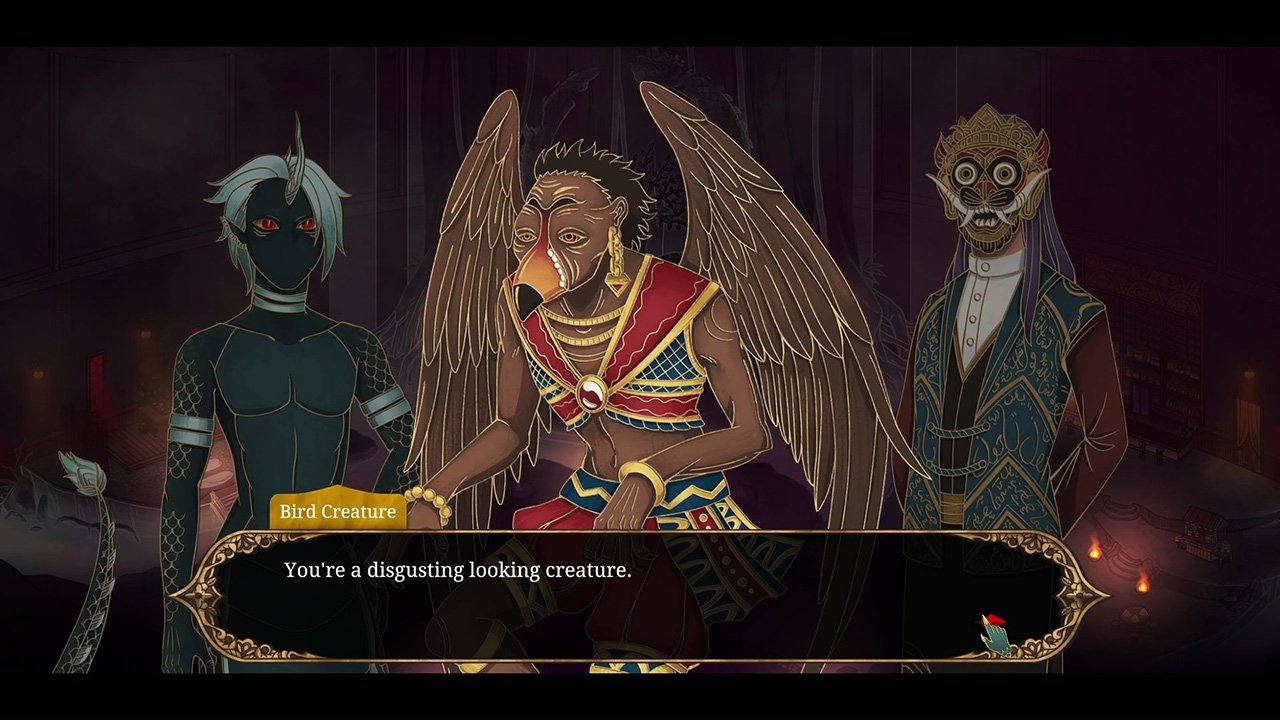
I admit here too that I have a very strong soft spot for monsters. I've always had it and always will have it and even in role-playing, usually, I'm always the one who chooses races that are often animalistic or with the strangest appearance.
And among the creatures that most fascinate me are the half-humans (centaurs, harpies, sirens/mermen, sphinxes, etc.) and among the half-humans, the half-serpents are among my favorites.
Half-snakes that in the West we call for the most part "Naga" without much consideration of the fact that they are rather specific creatures and of the folklore of particular populations (and in fact in the game we see that Nabau treats Jebat immediately as a similar creature, but absolutely not identical to her).
But this is just pickiness!
Game Mechanics
Ok!
One of the main mechanics is obviously formed by the classic dynamics of visual novels: dialogues to follow, choices to make, different endings to see which are reached through the summary of everything said and done during the game.
There isn't much to say about this, whether you're already a fan of the genre or not.
To guide your every step there will be a Journal that will be gifted to you by the Caretaker, where you can find an infinite amount of information: from all the types of tea you can brew and all the ingredients you need, to the list of NPCs you meet and how developed is your relationship with them, list of political factions and who you belong to, notes and more.
The second important mechanic that you will encounter in the game is the Tea Ceremony: once you arrive at the Kabaret, after a few brief exchanges with the Caretaker and the first of the many NPCs you will meet during the game, the enigmatic owner of the venue will elect you to Master of Tea and your task will be to cheer up the guests by preparing them three cups in as many shifts.
The Tea Ceremony
At some point in the game, the Caretaker will elect you as the new Tea Master and give you a small corner where you can serve it.
Apparently, within Kabaret it is an important role and this figure has been missing for some time.
With a small tutorial in the form of direct explanations from Caretaker to Jebat, the basic mechanism will be explained to you.
At the beginning it could seem very complicated and chaotic, to the point that, if you fail to understand the few rules, you will get everything wrong and it will frustrate you a lot. On the contrary, if you can understand them quickly, serving tea will (almost always) become extremely linear.
In a nutshell, the Tea Ceremony starts when a resident of the Kabaret joins you in your corner or you invite him there.
This character will always have some problems to solve: he could be in a bad mood for something that happened to him recently, he is tormented by something unresolved in his past, he has some important information for us or we simply need to make friends with him.
Whatever the reason, his problem is the starting point: we need to understand what he needs to decide what tea he needs to calm his agitation. Each tea has a rather evocative and slightly mysterious name, an excellent aid in deciphering the solution without actually serving it (no pun intended!).
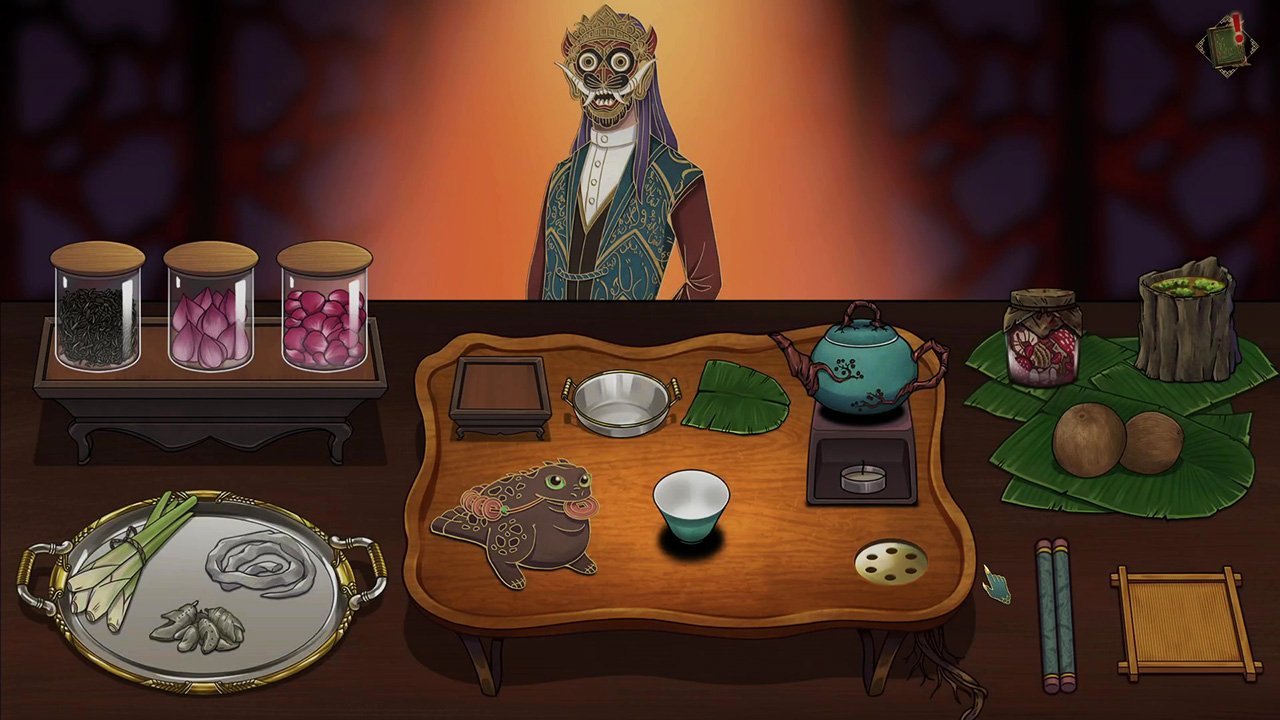
Once the type of tea has been decided, the rest is simple: choose the ingredients corresponding to the recipe, put them in the teapot and serve.
If we get it wrong we will receive more or less harsh remarks depending on the type of character and how wrong we were in serving it (if you get the type of tea right but the intensity is wrong it is very different from getting the tea completely wrong but guessing the intensity!).
You will be serving THREE different teas in THREE different rounds. Getting them all wrong, from what I've seen, can preclude relationships with that character even heavily or completely.
And don't forget to give a sip to Raden!
Allies and Enemies
Another important dynamic of the game is interacting with all the characters that are proposed and trying to get to know them in one way or another. Depending on what kind of game you are running and which of the candidates you want to support (each of them has characters who support and oppose them), your relationship with them can be more or less supportive.
One thing to note though is that during the game it is not possible to progress with the story unless you talk/interact with all the characters available for that scene. It is therefore not possible for you to decide who to talk to and who not to based on the relationships you want to have.
It is and remains a visual novel and not an RPG, so your choices have a relative effect and influence on the characters and your relationship with them.
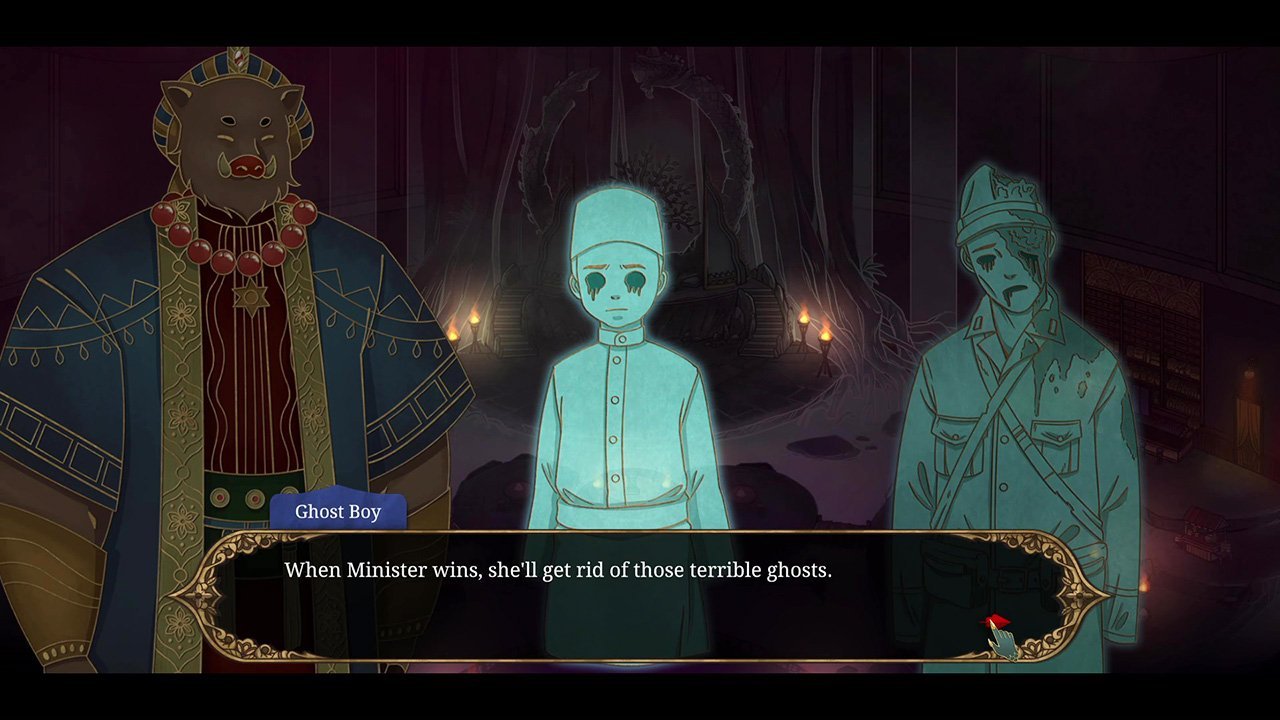
Minigames
Within the game there are several mini-games which are at the same time real traditional Malaysian games within the setting.
- Congkak: a mathematical game played with shells on a board formed by two rows of niches and two "houses", one row and one "house" for each participant. You have a finite number of shells available and the aim of the game is to deposit one in each niche, in rounds of games, with the aim of accumulating as many as possible in your home.
There are several bonuses that you can use in each turn, such as investing shells already present in your home to obtain more (with the risk of losing them), making your opponent skip a turn and capturing shells already inside the opponent's home.
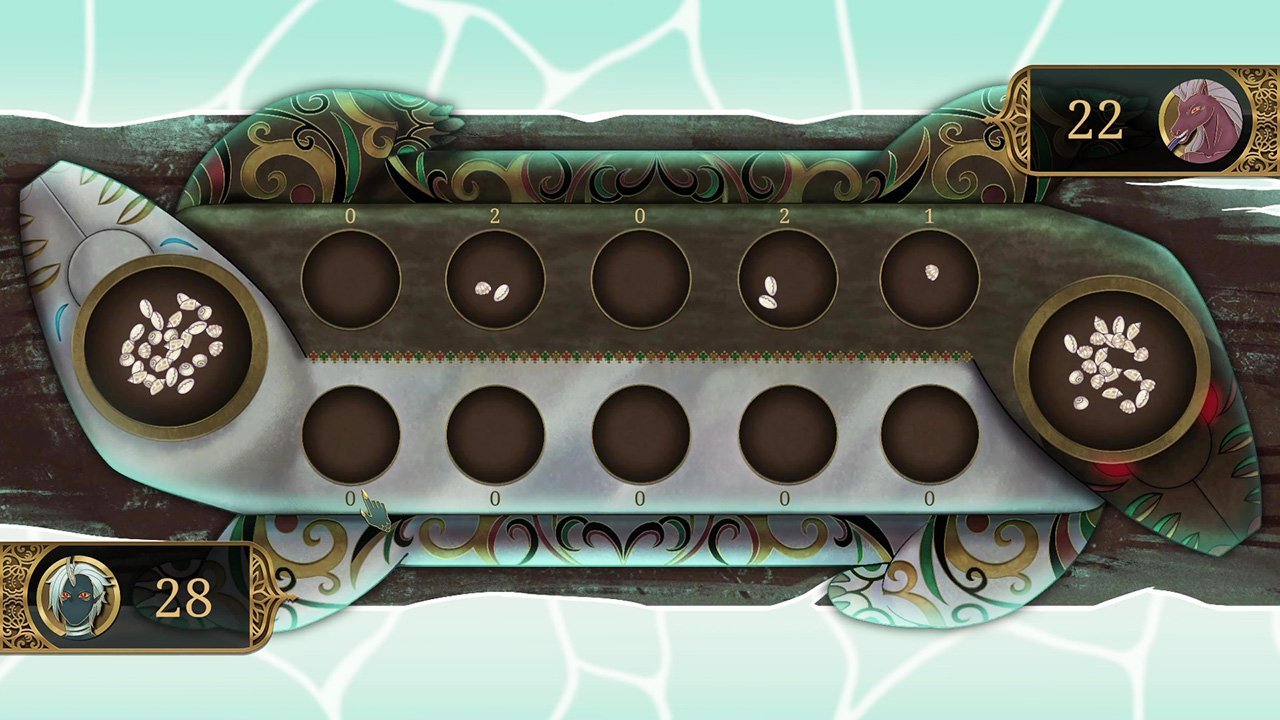
- Guli: a kind of battle with marbles inside a circular arena, with or without obstacles.
The main rules are few and very simple: you must always get a marble out of the arena, you must never miss a shot or make an empty shot.
You have three errors available and three minutes to succeed.
Two specific marbles inside the arena represent respectively a bonus and a malus, you have to hit the former and avoid the latter.
To shoot the "bullet" ball and access maximum strength, you will need to perform a button combo within a certain time.
If you use up all three mistakes or fail to eliminate all the marbles within three minutes, you lose the game.
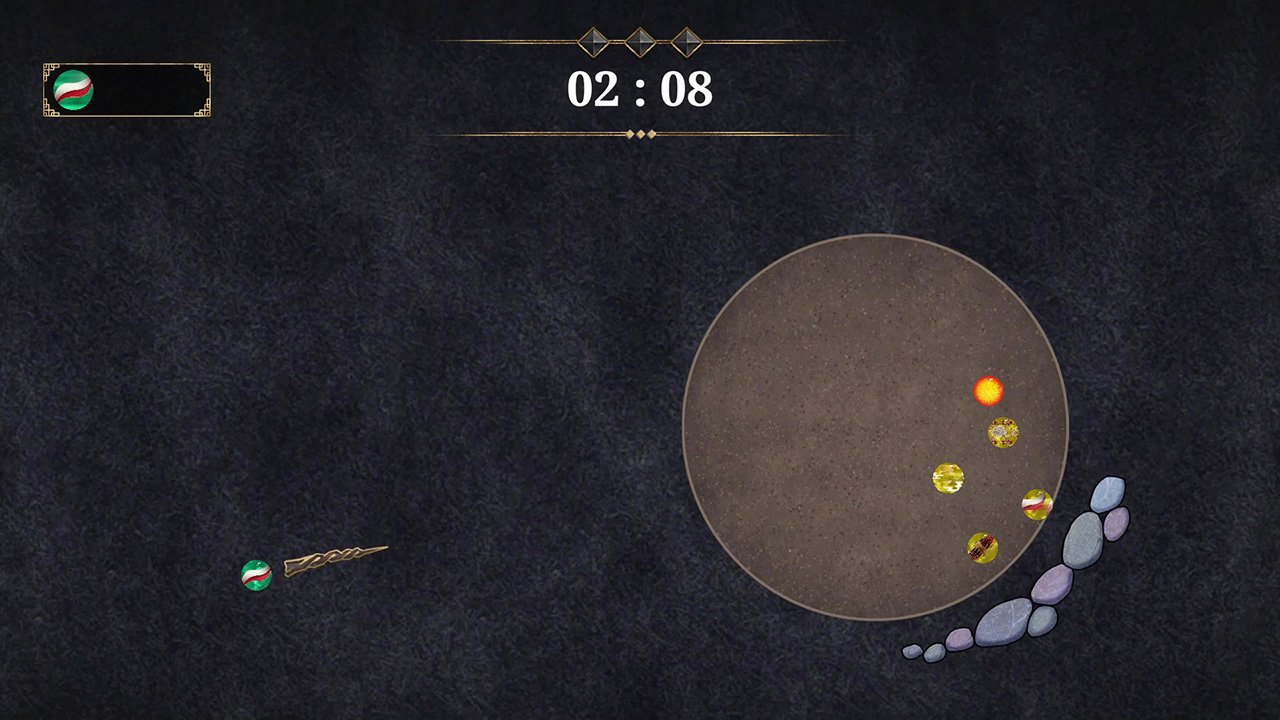
- Nabau's Concerts: not a real mini-game (it is for us, but not within the setting) but an exhibition where you will find yourself having to play Nabau's factotum to allow her to have all the special effects she needs.
It’s a test of skills, timing and coordination, not too easy but not too punishing either.
I personally found it a lot of fun!
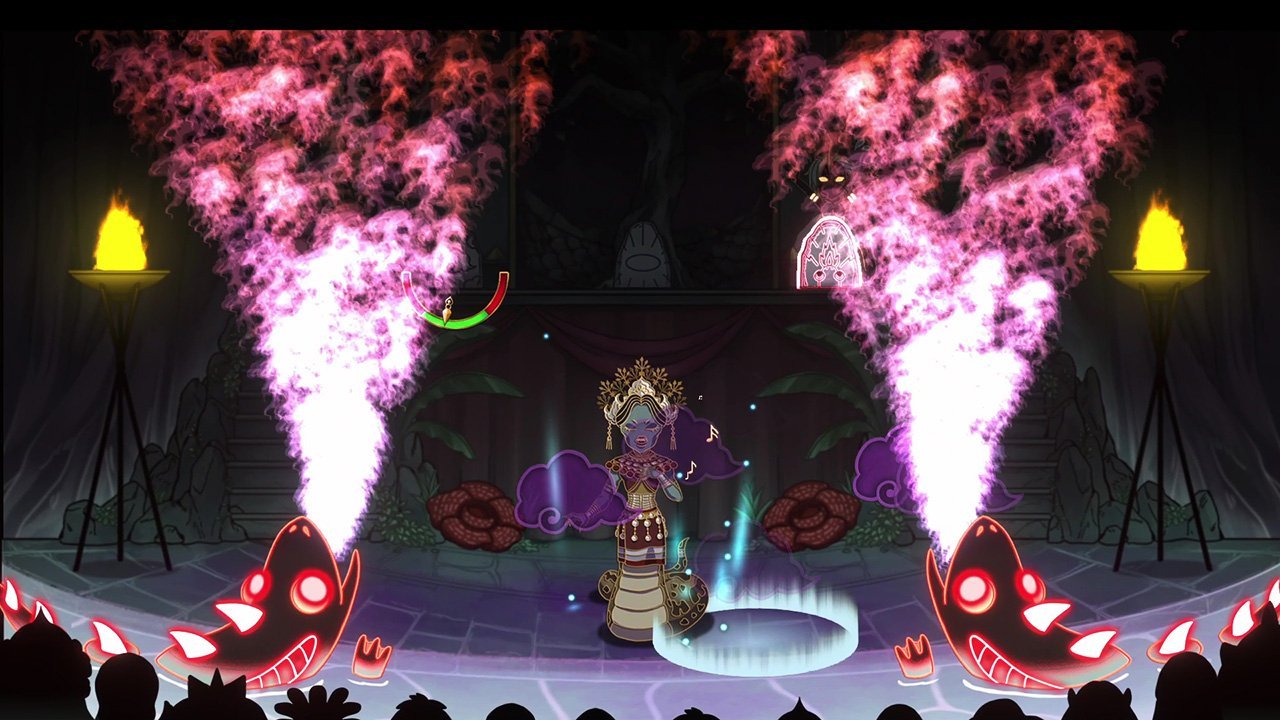
Soundtrack
Ok!
The background music is not always present but when it is there it is very evocative and at the same time very simple, while playing it manages to give the right mood and the right atmosphere.
After all, what we are playing is a real political campaign with dark and mysterious implications and having an idea of how to consider the appearance (or disappearance) of someone or the first impression when meeting a new character helps a lot
And above all, we mustn't forget that Jebat has just become a monster and has arrived at the Kabaret in a rather complicated moment, where not everyone takes kindly to him!
Apart from the background music, there are a number of pieces that are sung instead.
I struggle to trace them and indicate the titles, since with the game there is no soundtrack to buy (but I hope the devs will consider the idea, if they have the possibility, because -at least in my opinion- it's really beautiful).
One of my favorites, however, is that of the end credits, admitted and I don't know if granted that there is only one and it doesn't depend on the type of ending!
In any case, apart from the sung songs that I really liked, there are a couple that, although beautiful, seem to me to be a little out of tune with the setting and atmosphere. It is obviously a personal feeling and maybe they have a sense that escapes me at the moment, also and above all given that the game is called Kabaret and is effectively an entertainment venue. There is therefore that some songs are inspired more by the cabaret as a show than by the events told by history.
Other
Duration: ~15 ore
I find it a good length for a visual novel with a medium-complex plot and various minigames prolonging the gameplay.
Moreover, as always, keep in mind that I'm a slow player by choice.
Anyway, even rushing it, I think there are at least 10-12 hours of gameplay.
Performance: perfect!
Bugs: no bugs crawled out!
Notes
No note here!.
My Thoughts
Ok!
Kabaret is one of the interesting games that are arriving from Southeast Asia at the time I write (August 2023), an area that for us Westerners sounds very unfamiliar (except when it comes to tourism and travel) and, as far as I'm concerned, very fascinating for this very reason .
In fact, we are not used to hearing about it and we don't even have too much in mind the culture of each of those countries.
Precisely for this reason these games are a small window on concepts and environments very distant from us.
I start by saying that the game, of course, is not perfect.
No game is.
But I like to reiterate it and not as a demerit note, but to keep in mind that as far as I'm concerned, to get a negative review from me, a game must be really disastrous.
Practically a scam.
It doesn't depend on whether I got a game for free or not.
My thinking and opinions are always honest.
~°~
Plot holes: there are several things that are not explained, others that seem to fit little with the story or that are a bit hanging. I happened to see someone else (perhaps one of the reviewers on Steam), pointing this out but, I admit, apart from reporting it as an impression in itself, at the moment I have no idea if it's actually a rough construction of the setting or if it's something that is somehow intended.
We must always bear in mind that there is not always space or place for explanations and that sometimes it is not always necessary to explain everything or at a certain level of depth for the game. How deep it goes depends on a million different things.
So what looks like a "plot hole" could simply be a saving of material that, if added to the game, would have given nothing more.
Consequently mine is a "plot holes with reservations".
The gameplay is sometimes a bit cumbersome: the lack of a manual save system slightly undermines the freedom of play, especially considering that some time can pass between one automatic save and another.
Personally I interrupted and resumed several times and I admit that I didn't suffer that much, both accepting to lose a little bit of what I've already played (a few dialogues and little else), and honestly because it seems to me that the autosave is activated frequently enough not to having to go crazy playing hours at a time forcibly.
It was just annoying on a couple of occasions, due to sudden unexpected events that forced me to interrupt abruptly, without being able to wait to get to an auto-save.
However, if you are someone who may have problems with the availability of time, keep this lack in mind!
~°~
No option to skip dialogues: Another related thing is the lack of an option to skip dialogue in later games.
In my opinion, the absence of a skip button during the first game is due, if the game is a visual novel like in this case.
Playing one and skipping the dialogues is not only senseless (it would be a bit like wanting to play a rally video game and want to jump from start to finish) but it also goes against the very meaning of the game, i.e. reading: the visual novel is a interactive story, if you don't read this story or don't want to read it, what are we playing it at? Hunt for achievements for its own sake?
However, it would be very useful for those who, after the first run, want to explore the other dialogue choices more and discover new endings!
~°~
Regarding my opinion, I really enjoyed playing it and I found the story exciting and interesting, beyond what one might think about the literal gameplay technicalities.
As I said I am a lover of monsters, world building and folklore and this game combines a little bit of all three.
I must specify that at the time of writing I have only played it once, preferring the "I fully accept that I am a monster and I want to live accordingly" path, so at the moment I have no idea of how many and what the possible endings are (not I tried to avoid spoilers!), but in the near future I will certainly do it and I will integrate my thought with the missing data.
I really loved all the main character designs, from Jebat (my favorite design!) to Ekek, from Caretaker to Garuda, from Nabau to Minister.
I also absolutely appreciate that there is a good balance between female and male characters, both in the main and secondary and everyone has the opportunity to find their favorite character or have at least some sympathy for some of them.
I'm also happy to see that areas of the world that have so far been somewhat in the dark in game development finally have the opportunity to create their own stories and bring them to the global market.
Related Articles
If there was something I wanted to discuss more deeply, it's here!
Nessun articolo correlato, qui
(magari "non ancora"!) 😀
In Pills
In Pills
Recap
YASS
- A Southeast Asian game
Raw and cruel themes for a compelling story
An interesting protagonist, very unusual
A whole community of beautiful monsters from Asian folklore!
Outstanding soundtrack
SO-SO
No manual save option, only auto-save at specific time
- No skip in dialogues, even after the very first run
Relax-O-Meter
The gameplay is classic, with a strong "visual novel" flavor and interesting minigames based on traditional games of the culture and places described. The heavy themes and intrinsic violence of a world inhabited only by monsters (including the protagonist) certainly make the narrative deeper but in my opinion not oppressive to the point of losing relax. They are positive stress and thrills!
- = to be taken into consideration
- = for some it could be a problem
- = minor bug/glitch or issue
- = serious bug/glitch or issue
Watch The Video
Watch The Video




